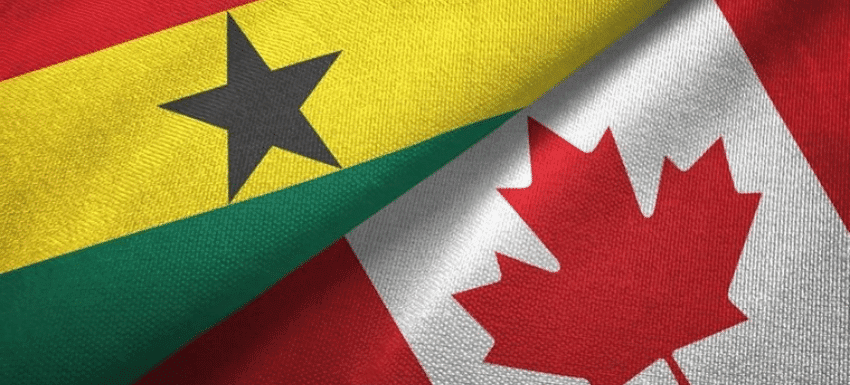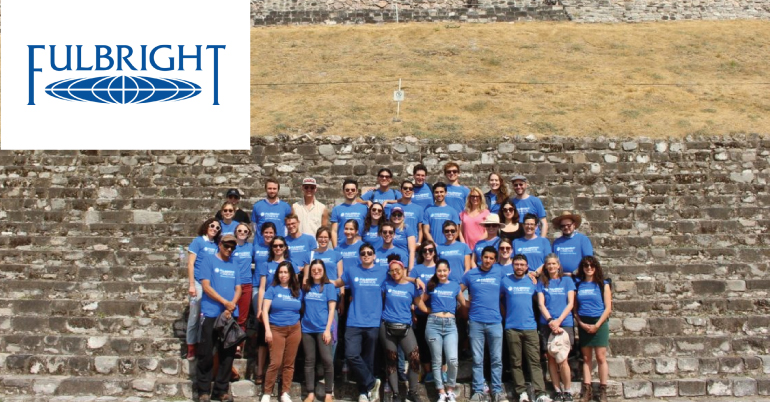If you’re contemplating a fresh start in Canada, you’re in the right place! This guide serves as a comprehensive resource for exploring various immigration pathways. From understanding visa options to navigating essential steps, we’re here to assist you throughout the journey. Let’s transform your dream of moving to Canada into reality—are you prepared for this exciting adventure?
5 Easy Ways for Nigerians to Migrate to Canada
Nigerians aspiring to call Canada home have several migration options available to them. These pathways include:
- Express Entry System
- Provincial Nominee Program (PNP)
- Work Permits
- Educational Opportunities in Canada
- Business Immigration and Family Sponsorship
Why Knowing Your Options is Important
Understanding these immigration options empowers you to make informed choices that align with your qualifications and personal circumstances. Whether you are a skilled worker, a student, an entrepreneur, or looking to reunite with family, knowing your migration avenues can greatly facilitate your journey.
Grasping the Migration Essentials
To successfully migrate to Canada from Nigeria, it’s vital to comprehend the immigration process and requirements. Effective preparation is essential for facilitating a seamless transition. Important factors that contribute to successful migration include language proficiency and relevant work experience.
Key Eligibility Criteria
The Comprehensive Ranking System (CRS) score is crucial for assessing whether an applicant meets the eligibility criteria.
Additionally, the Provincial Nominee Program (PNP) offers an alternative pathway for individuals seeking immigration opportunities in specific provinces.
How to Migrate to Canada from Nigeria
Statistics show a growing number of Nigerians have successfully settled in Canada, enriching the country’s cultural landscape. The migration of Nigerians has positively impacted the cultural fabric of both nations.
Express Entry System
Navigating the immigration process from Nigeria to Canada involves several steps. Start by gathering information on eligibility criteria and compiling the necessary documentation.
Begin by creating an online profile in the Express Entry system, providing details about your education, work experience, language skills, and other essential attributes.
After completing your profile, you will be assigned a CRS score based on the details you provided.
Immigration, Refugees and Citizenship Canada (IRCC) conducts regular draws from this pool.
Should you be chosen, an Invitation to Apply (ITA) for permanent residency will be granted to you. The final steps involve submitting supporting documents and undergoing medical and security checks.
Federal Skilled Worker Program
The FSWP targets individuals with specialized skills that are in demand in the Canadian labor market. Obtaining an Educational Credential Assessment (ECA) report is crucial for verifying international educational qualifications.
This report helps in comparing your credentials with Canadian standards. Nigerian applicants can also explore opportunities through the Provincial Nominee Program (PNP), which offers additional pathways to permanent residency.
Application Steps
To apply for the FSWP, candidates must create an Express Entry profile and meet minimum eligibility requirements. Documentation often required includes evidence of financial stability, results from language proficiency tests, and assessments of educational credentials. The time it takes to process applications can fluctuate based on the number of submissions and personal situations.
Canadian Experience Class
Individuals with Canadian work experience can apply through the Canadian Experience Class (CEC), which provides a pathway to permanent residency.
Eligibility for this program requires at least one year of skilled work experience in Canada within the three years preceding the application. Having Canadian work experience enhances your CRS score, thereby increasing your chances of receiving an ITA.
Provincial Nominee Program
The CEC emphasizes applicants who have already integrated into Canadian society and the job market. Transitioning to permanent residency through this route can offer advantages, such as smoother integration and increased employment opportunities.
Application Process for Sponsorship
If you’re looking to sponsor a family member for immigration to Canada, follow these steps:
- Submit your sponsorship application through the Provincial Nominee Program.
- Include all necessary documentation, such as proof of relationship and financial support.
Be aware that processing times may differ by province and individual circumstances. Key aspects of the sponsorship process include meeting eligibility requirements, maintaining clear communication with immigration authorities, and staying updated on any changes in policies or procedures.
Work Permit Options
For Nigerian nationals seeking employment in Canada, understanding the various types of work permits is essential. These include open work permits and employer-specific work permits, each with its unique requirements and advantages.
To obtain a Canadian work permit, applicants typically need a valid job offer, a commitment to leave Canada once the permit expires, and proof of financial stability. Some applicants may also need to undergo medical examinations, depending on their profession.
An open work permit allows individuals to work for any employer in Canada, offering greater flexibility to explore different job sectors and gain valuable experience.
Intra-Company Transfer
The Intra-Company Transfer program is a great option for multinational companies looking to relocate employees from their overseas offices to Canada. This program simplifies the process for skilled workers transferring within the same organization.
Employees applying for this program should generally have been with the company for at least a year and possess specialized skills or managerial expertise.
Studying in Canada
The journey to studying in Canada begins with applying for a study permit. Grasping the criteria is essential for navigating a successful application process. International students can benefit from numerous opportunities while studying in Canada.
Application Requirements
Successful immigration to Canada hinges on meeting the general requirements applicable to all types of applications. Thoroughly fulfilling eligibility criteria significantly influences the approval of your immigration application.
Business Immigration
Entrepreneurs looking to relocate to Canada can apply for the Start-Up Visa program, which is tailored for innovative businesses. Eligibility requires overseas work experience and a commitment to creating jobs in Canada, providing entrepreneurs with the opportunity to launch their ventures in a thriving economy.
Pros and Cons
Pros:
- Access to a supportive ecosystem for start-ups
- Opportunity to expand business operations in a stable economy
Cons:
- Stringent application requirements
- Limited annual slots available
Self-Employed Visa
Individuals with cultural or athletic backgrounds may qualify for the Self-Employed Visa program, which facilitates immigration to Canada. This program is designed for those who can positively contribute to Canada’s cultural landscape.
Key Information:
- Applicants must demonstrate intent and ability to be self-employed.
- Successful applicants enjoy the freedom of managing their own businesses.
Family Sponsorship
Understanding the criteria for sponsorship is crucial for Nigerian family members aiming to relocate to Canada. Sponsors must demonstrate financial capacity to support their family members throughout the immigration process and prove stability in both countries.
Sponsorship is a legal commitment where sponsors agree to financially assist their family members for a designated period. There are various family sponsorship options, including spousal sponsorship, parent and grandparent sponsorship, and dependent child sponsorship.
Application Process for Family Sponsorship
When applying for family sponsorship, applicants must submit several documents demonstrating their relationship with the sponsor, including supporting documents like marriage and birth certificates.
Additionally, applicants must undergo medical exams and provide police clearance certificates.
Support and Resources
Nigerian immigrants can access a range of services and organizations that offer relocation assistance. These organizations provide guidance on adapting to life in a new country. Community support networks can also help newcomers find housing, job opportunities, and integrate into Canadian culture.
Settlement programs aid immigrants in acclimatizing to their new environment by offering resources such as language training, job workshops, and social activities. Utilizing these resources can foster connections within the community and ease the transition to life in Canada.
Immigration Essentials
For Nigerians looking to immigrate to Canada, it is essential to familiarize themselves with the necessary information and requirements. Understanding crucial factors like visa types and eligibility criteria is vital for a smooth immigration process.
Prospective immigrants should explore various resources available to them upon arrival in Canada. Organizations such as Contact Us Canada can assist newcomers in navigating immigration procedures and legal requirements.
By taking advantage of these resources, Nigerian immigrants can more effectively navigate the complexities of relocating to a new country. Additionally, networking with members of the Nigerian community in Canada can provide valuable insights and support throughout the immigration process.
Conclusion
You now have a clearer understanding of the numerous options available for migrating to Canada from Nigeria. Each pathway—whether through the Express Entry system, Provincial Nominee Program, work permits, studying in Canada, business immigration, or family sponsorship—comes with its own set of advantages and responsibilities.
By leveraging these resources and support systems, you can effectively navigate the migration process and increase your chances of a successful relocation.
Frequently Asked Questions
Q1: How does the Express Entry System work for Nigerians migrating to Canada?
The Express Entry system employs a point-based assessment to evaluate candidates based on factors like age, education, work experience, and language proficiency. High-scoring candidates are invited to apply for permanent residency in Canada.
Q2: What is the Provincial Nominee Program (PNP), and how can it assist Nigerians in immigrating to Canada?
The PNP allows Canadian provinces to nominate individuals who wish to settle within their jurisdiction. Applicants receiving a provincial nomination earn additional points in their Express Entry profile, enhancing their chances of receiving an ITA for permanent residency.
Q3: Can studying in Canada be a pathway to immigration for Nigerians?
Absolutely! Studying in Canada can pave the way for immigration. Graduates holding a Canadian degree or diploma may qualify for post-graduate work permits and subsequently apply for permanent residency through programs like the Canadian Experience Class.
Q4: What options are available for Nigerians to obtain a work permit in Canada?
Nigerians can apply for various work permits in Canada, including open, employer-specific, and international mobility programs, allowing them to work legally in Canada for a limited duration.
Q5: How does family sponsorship facilitate immigration for Nigerians?
Family sponsorship allows Canadian citizens and permanent residents to sponsor family members seeking immigration. This program enables families to reunite
Here’s a rewritten version of your article, crafted for uniqueness and clarity while preserving the original’s intent:
Thinking of Moving to Canada? Let Us Help You Make It Happen!
If you’re contemplating a fresh start in Canada, you’re in the right place! This guide offers a thorough overview of the various immigration pathways available. From understanding your visa options to navigating the essential steps, we’re here to assist you every step of the way. Let’s turn your Canadian dream into a reality—are you ready for this thrilling adventure?
Five Hassle-Free Ways for Nigerians to Migrate to Canada
Discover multiple migration avenues available to Nigerians aiming to establish their lives in Canada. Options include the Express Entry System, Provincial Nominee Program, work permits, educational opportunities, business immigration, and family sponsorship.
Why This Matters:
Understanding these pathways empowers you to make informed decisions based on your qualifications and personal situation. Whether you’re a skilled professional, a student, an entrepreneur, or seeking family reunification, familiarizing yourself with your migration options can significantly simplify your journey.
Getting to Know the Migration Basics
It’s vital to comprehend the process and requirements for migrating to Canada from Nigeria. Careful preparation is key to ensuring a smooth transition. Important factors contributing to successful migration include language proficiency and relevant work experience.
Eligibility Requirements
For those applying through the Federal Skilled Worker Program (FSWP), it’s essential to meet specific criteria. Your Comprehensive Ranking System (CRS) score plays a crucial role in determining your eligibility.
Alternatively, the Provincial Nominee Program (PNP) offers another route for those exploring immigration opportunities.
Steps to Migrate from Nigeria to Canada
Statistics indicate that a considerable number of Nigerians have made Canada their new home, enhancing the country’s cultural diversity. The influx of Nigerian immigrants has positively impacted Canada’s cultural landscape, enriching both nations.
Express Entry System
The migration process from Nigeria to Canada involves several crucial steps. Start by researching eligibility criteria and gathering the necessary documents.
Your first task is to create an online profile in the Express Entry system, providing details about your education, work experience, language skills, and other important attributes.
Once your profile is complete, you’ll receive a CRS score based on the information submitted. Immigration, Refugees and Citizenship Canada (IRCC) conducts regular draws from this pool.
If selected, you’ll receive an Invitation to Apply (ITA) for permanent residency. The final steps involve submitting supporting documents and undergoing medical and security screenings.
Federal Skilled Worker Program (FSWP)
The FSWP targets individuals with in-demand specialized skills within the Canadian labor market. Obtaining an Educational Credential Assessment (ECA) report is vital for verifying your international educational qualifications.
This report helps compare your credentials with Canadian standards. Additionally, Nigerian applicants can explore opportunities through the PNP, which provides further pathways to permanent residency.
Application Process for FSWP
To apply for the FSWP, candidates must create an Express Entry profile and meet minimum eligibility requirements. Document requirements typically include proof of funds, language test results, and educational credential assessments. Processing times may vary depending on application volume and individual circumstances.
Canadian Experience Class (CEC)
For individuals with Canadian work experience, the Canadian Experience Class (CEC) offers a pathway to permanent residency.
Eligibility requires at least one year of skilled work experience in Canada within the three years preceding your application. Canadian experience boosts your CRS score, enhancing your chances of receiving an ITA.
Provincial Nominee Program (PNP)
The CEC focuses on applicants who have already adapted to Canadian culture and the job market. Transitioning to permanent residency through this route can provide advantages such as smoother integration and increased job opportunities.
Family Sponsorship Process
If you wish to sponsor a family member for immigration to Canada, follow these steps:
- Submit your sponsorship application through the Provincial Nominee Program.
- Include all necessary documents, such as proof of your relationship and financial support.
- Be aware that processing times may vary by province and individual circumstances.
Key aspects of the sponsorship process include meeting eligibility criteria, maintaining clear communication with immigration authorities, and staying informed about any policy changes.
Work Permit Options
Nigerians seeking employment in Canada must understand the different types of work permits available. These include open and employer-specific work permits, each with its own requirements and benefits.
To obtain a Canadian work permit, applicants generally need a valid job offer, assurance of leaving Canada upon permit expiration, and proof of financial stability. Certain professions may require medical examinations.
With an open work permit, individuals can work for any employer in Canada, providing the flexibility to explore various job sectors and gain valuable experience.
Intra-Company Transfer
The Intra-Company Transfer program is an excellent option for multinational companies wishing to relocate employees from overseas offices to Canada. This program simplifies the process for skilled workers transferring within the same organization.
Typically, employees applying for this program must have worked with the company for at least a year and possess specialized skills or managerial expertise.
Studying in Canada
The pathway to studying in Canada begins with applying for a study permit. Understanding the requirements is crucial for a successful application process. International students can enjoy numerous opportunities while studying in Canada.
Business Immigration
Entrepreneurs interested in relocating to Canada can apply for the Start-Up Visa program, designed for innovative businesses. Eligibility requires overseas work experience and a commitment to job creation in Canada, allowing entrepreneurs to launch their ventures in a robust economy.
Pros:
- Access to a supportive ecosystem for start-ups
- Opportunities to expand business operations in a stable economy
Cons:
- Stringent application requirements
- Limited annual slots available
Self-Employed Visa
Individuals with cultural or athletic backgrounds may qualify for the Self-Employed Visa program, which facilitates immigration to Canada. This program is for those who can positively contribute to Canada’s cultural landscape.
Key Information:
- Applicants must demonstrate the intent and ability to be self-employed.
- Successful applicants enjoy the flexibility of managing their own businesses.
Support and Resources
Nigerian immigrants can access various services and organizations that provide relocation assistance. These organizations offer guidance on adjusting to life in a new country. Community support networks can also help newcomers find housing, job opportunities, and integrate into Canadian culture.
Settlement programs assist immigrants in acclimatizing to their new environment, offering resources such as language training, job workshops, and social activities. Utilizing these resources can foster connections within the community and ease the transition to life in Canada.
Essential Immigration Information
For Nigerians aspiring to immigrate to Canada, familiarizing themselves with necessary information and requirements is essential. Understanding vital aspects such as visa types and eligibility criteria is crucial for a seamless immigration experience.
Prospective immigrants should explore various resources available to them upon arrival in Canada. Organizations like Contact Us Canada can help newcomers navigate immigration procedures and legal requirements.
By taking advantage of these resources, Nigerian immigrants can effectively navigate the complexities of relocating to a new country. Networking with members of the Nigerian community in Canada can also provide valuable insights and support throughout the immigration process.
You now have a clearer understanding of the numerous pathways available for migrating from Nigeria to Canada.
Each option, whether through the Express Entry system, Provincial Nominee Program, work permits, studying in Canada, business immigration, or family sponsorship, comes with its unique advantages and responsibilities.
By leveraging these resources and support systems, you can navigate the migration process more effectively and increase your chances of a successful relocation.
Frequently Asked Questions
Q1: How does the Express Entry System function for Nigerians migrating to Canada?
The Express Entry system uses a point-based assessment to evaluate candidates based on age, education, work experience, and language proficiency. High-scoring candidates are invited to apply for permanent residency in Canada.
Q2: What is the Provincial Nominee Program (PNP), and how can it assist Nigerians in immigrating to Canada?
The PNP allows Canadian provinces to nominate individuals wishing to settle within their jurisdiction. Applicants receiving a provincial nomination earn additional points in their Express Entry profile, enhancing their chances of receiving an invitation to apply for permanent residency.
Q3: Can studying in Canada lead to immigration for Nigerians?
Absolutely! Studying in Canada can provide a pathway to immigration. Graduates with a Canadian degree or diploma may qualify for post-graduate work permits and subsequently apply for permanent residency through programs like the Canadian Experience Class.
Q4: What options are available for Nigerians to obtain a work permit in Canada?
Nigerians can apply for various work permits in Canada, including open, employer-specific, and international mobility programs, allowing them to work legally in Canada for a limited duration.
Q5: How does family sponsorship facilitate immigration for Nigerians?
Family sponsorship allows Canadian citizens and permanent residents to sponsor family members seeking immigration. This program enables families to reunite while providing a structured process for migration.








